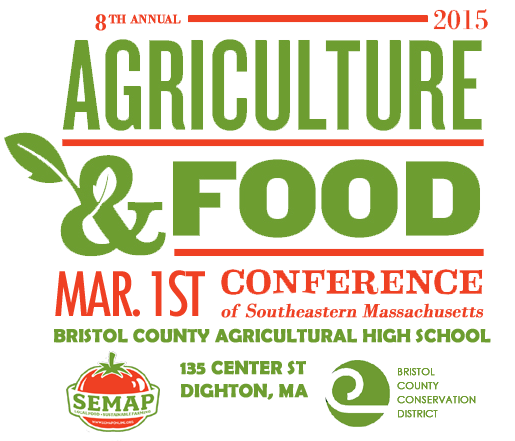
Registration Fees
Early Bird (through February 15th)
SEMAP Members - $25
Non-SEMAP Members - $35
February 16th-28th
SEMAP Members - $30
Non-SEMAP Members - $40
At the door
SEMAP Members - $35
Non-SEMAP Members - $45
Students
$15
Not a SEMAP member? Sign up here!
Contact
Jason WentworthSEMAP Executive DIrector
(617) 417-4050
jwentworth@semaponline.org
Conference Committee
Ashley Brister, Round the Bend Farm
Derek Christianson, Brix Bounty Farm
Sue Guiducci, Bristol County Conservation District
Kyle Medeiros, Bristol County Agricultural High School
Kendra Murray, SEMAP
Jason Wentworth, SEMAP
This conference is made possible with support from the MA Department of Agricultural Resources (MDAR)

In partnership with the Bristol County Conservation District (BCCD)

Conference Sponsors


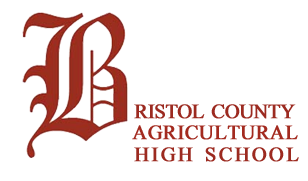
![]()



![]()

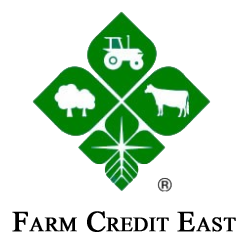
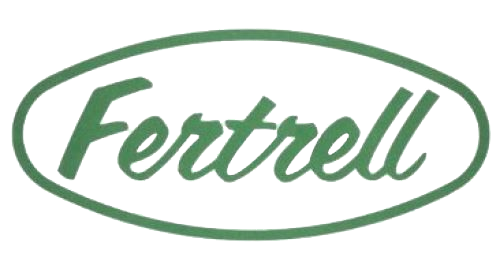
Resource Fair Exhibitors
Bristol County Conservation District (BCCD)
Bristol County Beekeepers Association
The Carrot Project
ecoRI news
Edible South Shore & South Coast
Farm Service Agency (USDA)
Farm to School
First Citizens' Federal Credit Union
H & R Block
Legal Services Food Hub
Mass Farm Bureau Federation
New Entry Sustainable Farming Project
NOFA/Mass
The Progressive Grower
SEMAP (Southeastern MA Agricultural Partnership)
Sharing the Harvest Community Farm
Southcoast Energy Challenge
Southcoast Health
Trustees of Reservations
UMass Extension
USDA Natural Resource Conservation Service
Join us for our 8th Annual Ag & Food Conference!
Presented by SEMAP and Bristol County Conservation District
Sunday, March 1, 2015, 8:30 am - 5:00 pm
Bristol County Agricultural High School
135 Center St, Dighton, MA 02715
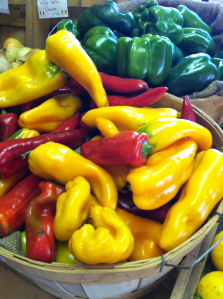
About the Conference: Whether you're a professional farmer, a backyard gardener, or just curious about locally grown food, this is the event for you! This year's offerings include workshops for the general public as well as info-packed sessions for farmers and gardeners of all experience levels and workshops specific to organic methods.
Registration includes a delicious, locally-sourced lunch catered by M&C Cafe of New Bedford. We will also have our Resource Fair where you can meet and learn about local organizations and businesses that provide services and products to help you grow, whether you've got a hundred acres or a couple of window boxes.
Businesses or organizations interested in sponsoring or exhibiting can contact Jason at jwentworth@semaponline.org.
Conference Schedule
8:30 am - Registration Begins, Resource Fair Opens
9:00 am - Opening Remarks
9:30 am - 11:00 am - Workshop Session 1
11:15 am - 12:00 pm - Keynote speaker Will Bonsall & Announcements
12:00 pm - Lunch
1:00 pm - 2:30 pm - Workshop Session 2
3:00 pm - 4:30 pm - Workshop Session 3
Fermentation, Geoff Lukas

Fermentation is one of the oldest forms of food preservation and appears across all cultures and geographies. Classically, it allowed civilizations in colder climates to make the most of a short growing season; and those in hotter climates to withstand the rigors of the summer. Now there is renewed interest as fermentation is seen as a way to produce interesting flavors and textures as well as being very positively impactful nutritionally. Fermented foods appear in fascinating ways and often with surprising cross-culture parallels, displaying endless ingenuity in the face of scarcity. This presentation will introduce these concepts and use fermentation as a platform for discussing food culture, nutrition, and food preservation.
Food Security in Southeastern MA, Sarah Kelley + Stephanie Reusch
Are you interested in community food security and the big picture of our region’s food system? If so, please join us! This workshop includes an overview of and discussion about the surprising findings, lessons learned, and future implementation steps of the Southeastern Massachusetts Food System Assessment. In this workshop, you’ll have a chance to learn about some of these key gaps and needs in our local food system, weigh in with your thoughts, and be part of building a united effort to improve community food security in our region.
Developing a Business Plan - A Step by Step Guide, Jon Jaffe

Join Jon Jaffe for an informative workshop on business plan development. What is a business plan? Why is a business plan important? Who are they written for? Jon will then discuss the six components of a business plan including: 1) Executive Summary, 2) Business Description, 3) Operations, 4) Marketing Plan, 5) Management and 6) Financials. A sample business plan will be shared and there will be time for Q & A.
Hot Water Seed Treatment, Katie Campbell-Nelson

In order to raise healthy vegetable crops, you must start with healthy seed. One of the major concerns with vegetable seed is carryover of bacterial, fungal or viral diseases. In this hands-on workshop you will learn about seed-borne diseases and how to prevent them using the age-old yet safe and effective method of hot water seed treatment to eradicate seed-borne pathogens. Bring your saved or purchased seed to treat in the hands-on portion of this workshop— small seeds such as pepper, tomato, eggplant, kale, broccoli, and lettuce can be treated, but beans, squash, cucumber, or pumpkin seeds are too large. Chemically treated or pelleted and primed seed can not be treated. Treating seed saved for more than one year or seed from a field heavily infested may inhibit germination. Contact the presentor if you have questions about which seed to bring kcampbel@umass.edu, 413-545-1051. Bringing seed is not a requirement to attend this workshop.
Ask the Poultry "Eggs"pert - a Q & A Session, Michael Darre
Join Michael Darre for an informative q & a session on backyard poultry. Whether you are just curious to start raising chickens or have done so for years, this is a great workshop to have all of your questions answered and concerns addressed!
Seed Sovereignty 101: What we've lost, and how we can reclaim it, Bill Braun
Exploring the erosion of diversity and the political dominion over what we eat; and inquiring into the role of farmers, gardeners, and consumers in fostering a resilient food supply rooted in the public domain.Trace Minerals in Your Garden: Basics & Beyond, Derek Christianson

Trace Minerals are essential to producing healthy crops. In this workshop we'll review the functions of 6 trace minerals (Boron, Copper, Iron, Manganese, Molybdenum, Zinc) in plant metabolism and discuss the best practices to ensure the plants in your garden can access these critical minerals. For gardeners of all scale and experience levels.
Tomato Grower Panel

Interested in growing some of the best tomatoes? Learn the dos and don’ts from a panel of “tomato experts,” including Langwater Farm, who brought home 4 trophies at the Massachusetts Tomato Contest last year (1st in heirloom, 1st & 3rd in red slicing, 2nd in cherry). More panelists will be announced soon!
Ecoefficiency - the Heart of Sustainable Agriculture, Will Bonsall
The organic movement needs to be asking itself questions that go far deeper than OMRI or NOP standards. Are our farms and gardens actually producing fertility or merely moving it around, with a huge carbon footprint? The best organic cropping system is inferior to nature's method of maintaining and even building tilth using materials which ate the most ecoefficient - produce more than they consume. Only by carefully examining our farm or garden's real bottom line can we hope to be truly sustainable.
I Can't Believe People Eat Those Things Raw! An Introduction to Oyster Farming in the Northeast, Dale Leavitt
Farming oysters is one of the fastest expanding agricultural enterprises in the region and is a relatively easy business to enter once you get past the hurdle of site selection and licensing. This workshop will present an overview of what it takes to grow oysters in the northeast and what the common risks are for the successful oyster farmer. The stages of farm operations and conventionally used on-growing technology will be reviewed along with a quick survey of siting and licensing requirements. We will end with a sampling of oysters grown in local waters.
2014 Vegetable Disease Update, Sue Scheufele
Understanding the biology of disease-causing organismscan help you make more informed decisions about how to manage diseases and minimize their impacts on your farm.In this workshop we will review disease management principles focusing on the impact of pathogen biology on disease spread and management, using the 2014 season as a guide. Get information on new diseases like basil downy mildew, dig deeper into perennial diseases like leaf blights in tomato, and discuss major disease outbreaks of 2014 like late blight on tomato/potato. —Q&A to follow.
The Latest on On-Farm Food Safety, Rich Bonanno
The FDA will release the final regulation regarding the Food Safety Modernization Act in 2015. In addition, many buyers are requesting 3rd party audits from growers to show that they are following good agricultural practices on the farm. This session will deal with what will be expected from farmers as we move forward. The session will be presented by Dr. Rich Bonanno, food safety specialist at UMass Amherst, grower, and President of he Massachusetts Farm Bureau Federation.
Home Gardening, Andy and Val Tomolonis
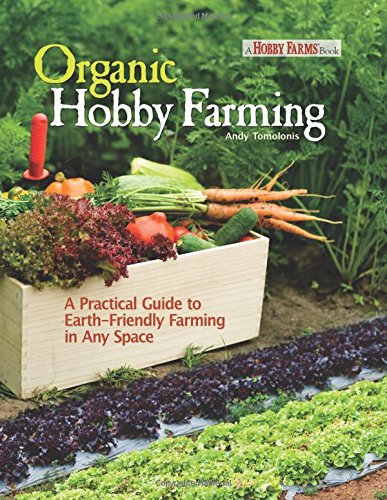
Andy and Val Tomolonis, who have operated a small-scale commercial CSA farm from their 1 acre suburban plot, will describe their operation, stressing organic techniques. Topics will include siting a garden, building trellises, using raised beds and low tunnels; starting seeds indoors; successive crops; making compost and preventing insects and diseases naturally. Andy is a SEMAP board member, an online editor, a longtime garden communicator and author of the new book, "Organic Hobby Farming." Val is office manager for OSM Inc., which markets organic and natural products for the home and garden.
Eating Locally + Sustainable Nutrition, Nicole Cormier

Nicole's passion for nutrition counseling and the local food movement led to her involvement in a variety of projects with local farmers and the community. This workshop will provide a guide to reaching your optimal level of health and energy as part of a sustainable nutrition practice, while learning about the benefits of local food sources and sustainable food.
Growing Grains in New England, Noah Kellerman
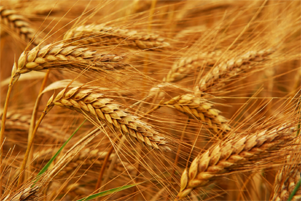
Grain production is virtually unknown in New England. However, our climate and soils can produce high yields of delicious grains and beans that add diversity to our crop rotations, CSA shares and local diets. We will cover agronomy, soil impacts, disease management, harvesting, processing and marketing of wheat, barley, corn, beans and other crops. This workshop aims to demystify grain production and explore how these valuable crops can be integrated into gardens, homesteads and commercial farms. Technology ranging from sickle and flail to combines will be discussed.
Using Forest Residues to Build Soil-Fertility, Will Bonsall
Natural ecosystems rely on plant materials (grass and forest residues) to maintain and build tilth. The consumers, including our livestock and us, do not create any fertility, but merely concentrate it and move it around. Importing nutrients from off the farm is just a shell-game that enables us to kid ourselves that we are organic and sustainable. But how can we convert those high-cellulose materials into things we like to have on our plate?
Fiber Enhancement, Tom Colyer, Eric Reid, and Sean Riley
There is a resurgence in the demand for US made fiber products. New England was once a center for fiber production and there is a movement heading back in that direction. In this workshop Sean Riley will be giving an overview of the NEAFP, fiber demand, and how different grades of fiber get sent to production. Tom Colyer will be discussing strategies for producing high quality fiber and market trends from the sheep perspective, and Eric Reid will be discussing the basics of feeding ruminants with a focus on forages and nutritional strategies that affect fiber production and quality.
Shucking Around with Salty John: A Creative Raw Bar Experience, John Arruda
Come and learn a few recipes from a true raw bar pioneer using local oysters, sourcing local (and some very surprising) ingredients. John Arruda, a native of the SouthCoast, has plied his trade at private functions, and restaurants in South Dartmouth and in the trendy Williamsburg neighborhood of Brooklyn, New York. As a seafood sales manager, he began experimenting with unique and nontraditional ways to prepare seafood, particularly oysters...and he continues to explore new taste frontiers.
Brassica Pest Management, Sue Scheufele
Brassica Pest Management: More and more acres are being devoted to brassica production, and year-round production of brassica greens has become commonplace. Managing insect and disease pests in these situations is critical so that populations don’t build up to uncontrollable levels. We will discuss biology and management of common insect and disease pests in these crops, with special attention given to cabbage root maggot and Alternaria leaf spot, and ongoing research in these areas being conducted by UMass Extension. Management recommendations will include both cultural and chemical control practices relevant to organic and conventional growers across scales.
2014 Farm Bill Programs, Julie Viveiros
Discussion regarding new USDA programs and program changes as a result of the 2014 Farm Bill. Programs covered will include FSA Loans, Price Support, Insurance and Disaster programs as well as the general eligibility requirements to participate. Will also discuss benefits available to historically under-served and beginning farmers.
Vermicomposting, Janice Brown McPhillips
Most farmers and gardeners know how to build an outdoor compost pile using the proper mix of “brown” and “green” ingredients, and most know about the benefits of adding compost to a vegetable garden or a farm field for improving soil structure, increasing soil water holding capacity, adding biologic activity to soils, etc. Even the most seasoned composters tend to shy away from worm composting or vermicomposting. With a winter like the one we are currently having, where outdoor compost piles might be inaccessible due to huge snow banks, why not think about starting a worm bin or two? This presentation will cover a bit of outdoor composting just as a review and then launch into the wonderful world of worm composting including how to set up a small bin in an inexpensive plastic storage tote. You will leave with all the information needed to begin your own vermicompost system on whatever scale is right for your needs.
Is This the Right Farmland for Me?, Leslie Cox
Leslie Cox, Farm Director of The Trustees of Reservations, will discuss with examples, the needed items on a property to start farming, i. e.: location, soils, infrastructure, leasing, community, etc. Be prepared by bringing your own examples for others to hear about, or if you are new, come and listen.Prior to becoming Farm Director of the Trustees, Leslie was the Farm Manager at Hampshire College for 17 years. He was born on a large farm, has started many farms with USDA, and says he's been on way too many farms to count!
Give Yourself Credit for Planting Cover Crops, Andy Radin
By planting cover crops on your fallow soil, you can give yourself credit not only for being a good steward of the soil, but also for keeping essential plant nutrients in play for the next growing season. Learn about the various categories of cover crops and how your soil can benefit from them.
Advanced Seed-Saving, Will Bonsall
Seed, like fertility, should not always come from “somewhere else”. Growing and saving one’s own seed is a vital aspect of any sustainable farm. Beans and tomatoes may be a good beginning, but for those who want to take the next step” crops like corn, cukes, and squash require some attention to pollination control to keep a variety stable and true-to-type, and biennials like carrots, leeks, and kale, need to be overwintered. We’ll tell you how.